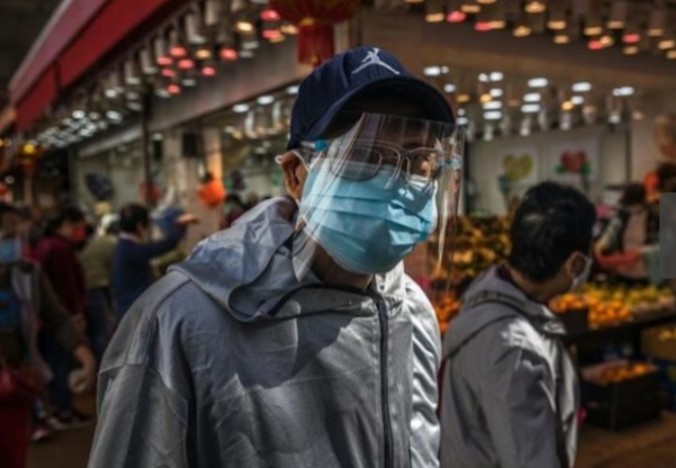Overflowing hospitals, empty supermarket shelves and grim quarantine camps — Hong Kong is in chaos battling a ballooning Covid outbreak in a business hub once renowned for its efficiency.
Many locals are fuming at the government’s failure to prepare after winning rare breathing room with two years of an economically painful but largely successful zero-Covid strategy.
Other countries that deployed zero-Covid such as Australia, New Zealand and Singapore are now learning to live with the virus, but China remains committed to stamping it out and has ordered Hong Kong to do the same.
The financial centre is now preparing to test its entire 7.4 million population and isolate everybody infected as it clings to the policy even as cases spiral out of control.
Morgues are running full, ambulances are in short supply and patients are enduring long spells in basic quarantine facilities isolated from loved ones.
Emily, a 40-year-old mother of two, is convinced her family became infected when they spent hours in queues for two rounds of compulsory tests last month after a case was discovered in their building.
The results took 10 days and showed that all except the youngest child were negative. But by that point, the whole family were displaying symptoms.
“I never thought I would harm my dearest when I was merely trying to cooperate with the government,” she told PMC, asking to use just her first name.
“It’s traumatic.”
– Test and isolate –
Hong Kong is now embarking on an audacious mass testing and isolation plan despite registering 190,000 infections in the last two months.
That is more than three times the number recorded in Wuhan, where the virus first emerged in 2020 and was only brought under control by confining millions to their homes for weeks.
The Omicron variant pummelling Hong Kong is also far more infectious but Chinese officials nonetheless appear adamant they can succeed.
Liang Wannian, one of the key architects of China’s lockdown strategy, arrived in Hong Kong on Monday as the city’s health chief revealed Hong Kongers may be confined to their homes for part or all of the mass testing period.
That revelation has prompted panic-buying in the last two days.
Few details have emerged about what authorities will do with tens, possibly hundreds, of thousands of cases uncovered by mass testing.
But city leader Carrie Lam has said they do not want people recovering at home.
About 70,000 isolation units are due to come online in the coming weeks, some in requisitioned hotels and public housing blocks, others in hastily erected camps being built with Chinese help.
Local experts however warn that the facilities are still a fraction of what is needed.
“If we do not have a plan on how to quarantine the confirmed cases, then mass testing will not be useful at all,” pandemic adviser Ivan Hung told reporters this week.
– ‘Very scary’ –
Those who have spent time in the quarantine camps say conditions are grim and chaotic.
You can call it a concentration camp instead of a quarantine camp,” Samuel Ho, an IT professional who spent a week at the Penny’s Bay facility on the outlying Lantau Island, told PMC.
Ho, asking to use a pseudonym, said he was given no instructions for his first two days and his only contact with the outside world was the cold meals placed outside his cabin.
He said calls to a government health line he was meant to report to often went unanswered.
“It was very chaotic, very scary and it could easily crash one’s mind,” Ho said.
“All the government’s arrangements have rendered Hong Kong an unlivable place.”
Last week detainees at the same camp held a protest accusing authorities of keeping them beyond their discharge days.
Cyan, 25, was held at a different camp last month on Hong Kong Island alongside her grandmother and younger sister.
“The whole thing feels unreasonable and meaningless,” Cyan said, adding they felt they could take better care of themselves at home.
“I am wasting public resources when others in more urgent need cannot get any.”
Both Hung and Ben Cowling, an epidemiologist at the University of Hong Kong, have called for the mass testing to be postponed to build enough units to isolate all cases and their contacts.
Hung is opposed to a lockdown and said energy would be better spent getting Hong Kong’s dangerously under-vaccinated elderly population inoculated.
Cowling told PMC a short lockdown could “slow down transmission”.



Comments are closed.